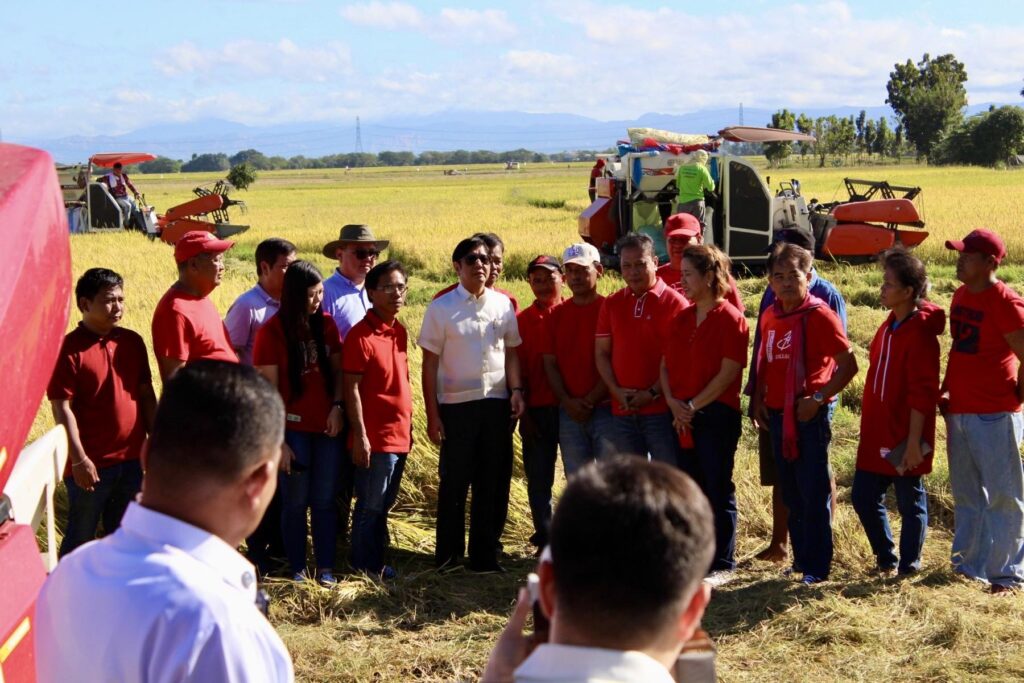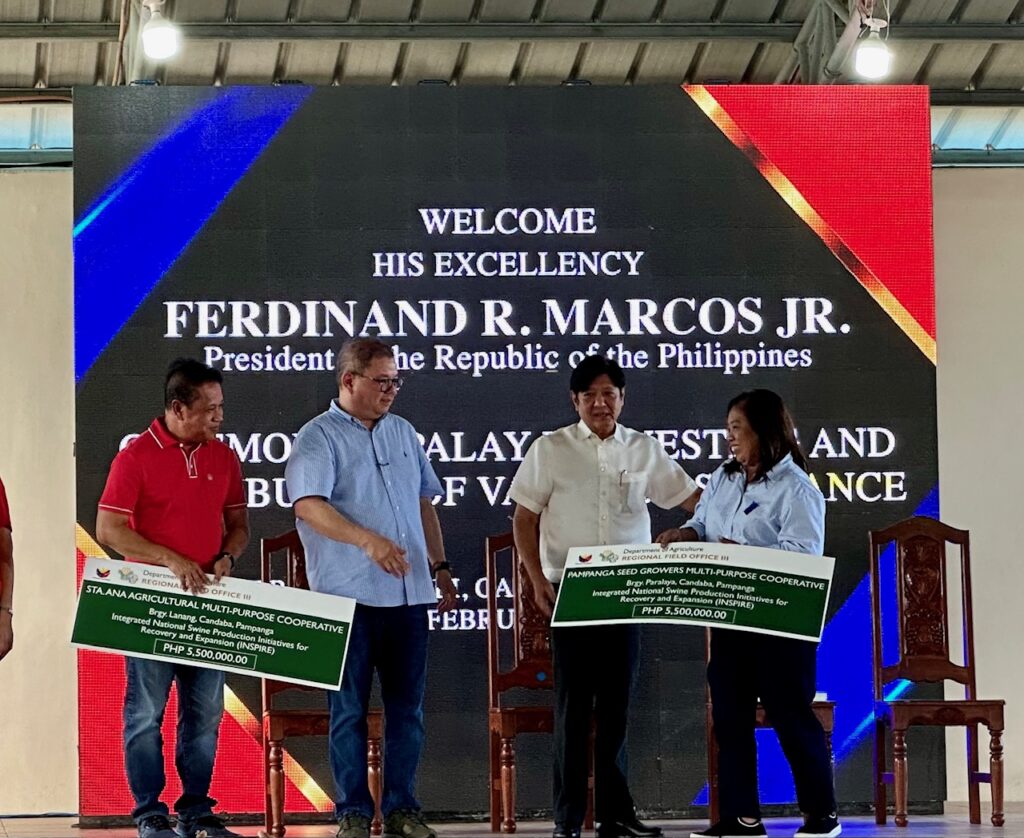
CANDABA, Pampanga—President Marcos said here on Saturday that the national government is addressing today’s threats and effects of El Nino affecting the rice industry sector through intensified water supply programs particularly the solar-powered irrigation project that will benefit all farmers in the country and through the P31-billion worth of funds for the national rice program.
The President who staged a ceremonial palay harvesting process in a rice land area in Barangay Mandili also led the distribution of rice seeds and fertilizer to more than 1,000 farmers. The distribution was held at the covered court of Mandili National High School.

According to the President, the El Nino being experienced today continuously affects the farmers and causes damages to their crops. He said the El Nino is expected to last until the month of June and even until before the end of 2024. But he said, the Filipinos are not afraid of the El Nino because the national government is there to give all the needed support to the agriculture sector particularly to the rice industry.
Through the Philippine Solar Irrigation project, where each unit could provide water supply to 20 hectares of rice farms, hundreds of farmers will be benefited. The water project, the President said, is the major key in improving the production yield of the farmers and to help reduce the country’s rice importation.
Mr. Marcos said the national government is aimed in reducing the annual 3.5 million tons of rice importation from Vietnam through the solar-powered irrigation which will give sufficient water supply to farmers in the country and will irrigate 180,000 hectares of rice farms that could cut 1.2 million tons from the said annual volume of the country’s rice importation.
He said during a recent visit he and Department of Agriculture Secretary Francisco Tiu Laurel Jr. made in Vietnam, they were amazed on the high volume of rice yield in the country that’s why they are now stepping up measures to increase our country’s rice production.
“Kapag marami na ang supply ng tubig pang irigasyon, makaka-3 croppings na tayo sa isang taon, hindi tulad ng kapag rain-fed ang ating tubig, 2 croppings lang. Susi at talagang ang sekreto ay ang patubig,” (When there is sufficient water supply for irrigation, our farmers could have 3-croppings a year, unlike when we only depend on rain-fed waters, we only achieve 2-croppings a year. The real key and secret is the water system), the President said.

The President however expressed elation in the recent success of the rice industry in the country after it increased to more than 20 metric tons or 1.5% of its rice production in 2023. The increase is equivalent to an additional 300,000 tons in yield. This was achieved, he said through the improved rice seeds, fertilizers and joint support and efforts of all the farmers and stakeholders and the implementation of the Department of Agriculture of its programs to help the farmers increase their production.
But the President said other than the challenges brought by El Nino, the rice production industry also faces other challenges for new types of rice seeds that are suitable for climate change and the creation of climate risk assessment. “Farmers need to know if there are other varieties that can stand rains, typhoons and dry spell,” Mr. Marcos said.
He assured Candaba farmers of help for their needed rice mills so that they will no longer rely on rice mill services in Bulacan.
Under the P31-billion national rice program for 2024, production management, extension services, research and development and irrigation network services will be given priorities. The President also said that the national government will continue to use the funds under the Rice Competitive Enhancement Fund to acquire mechanical and equipment tools for the farmers like tiller, tractor, trashers, harvesters, seeder and others.
Additional capitals will also be provided to the farmers through Land Bank of the Philippines, Development Bank of the Philippines, Agricultural Technology Institute and Technical Education and Skills Development Authority (TESDA) not only to uplift the living condition of the farmers but more so to strengthen the modernization of the agriculture and farming sector in the country.
“The dedication of our farmers, their sacrifices and the continued hard work of their bare hands in tilling the lands and our soil give life and inspiration to the Filipino people. Each of the grains they plant will grow to become the foundation of a much stronger, much stable future. Your government is with all of you to help you achieve all your hopes and aspirations. The government and the cooperation of the agriculture sector is just one of the many steps towards achieving our new nation, where no one will be left in hunger and that each and everyone will strongly join hands in the pursuit of our new future, our Bagong Pilipinas. Long live Bagong Pilipinas,” the President ended his speech.
Candaba Mayor Rene Maglanque expressed gratitude to the President as he led
Candaba the more 1,000 farmer beneficiaries of the rice seeds, fertilizers and P5,000 cash money.
Maglanque said there are more than 30,000 hectares of rice farms in the 33 barangays of Candaba and that 10,500 families are engaged in rice farming and agriculture.
He said his town produces 2 million sacks of rice or 91 metric tons during the dry season including different types of vegetables including watermelon and melon.
But he said, during the wet season, because of the flood affecting the Candaba swamp, their production diminishes to a large percent. Candaba, he said, is affected by 1-5 floods a year.
Maglanque also assured the President of the whole Candaba’s support to him amid negative issues currently being hurled against the President.






